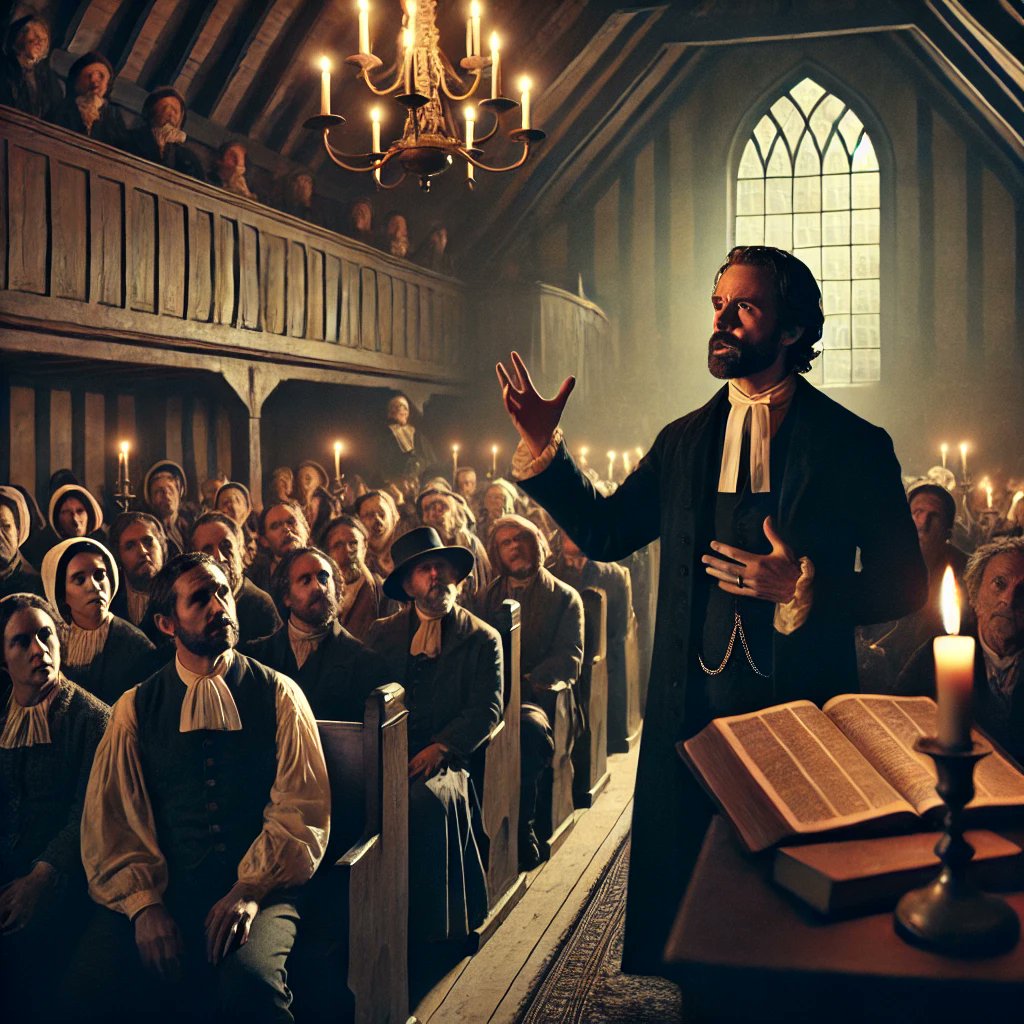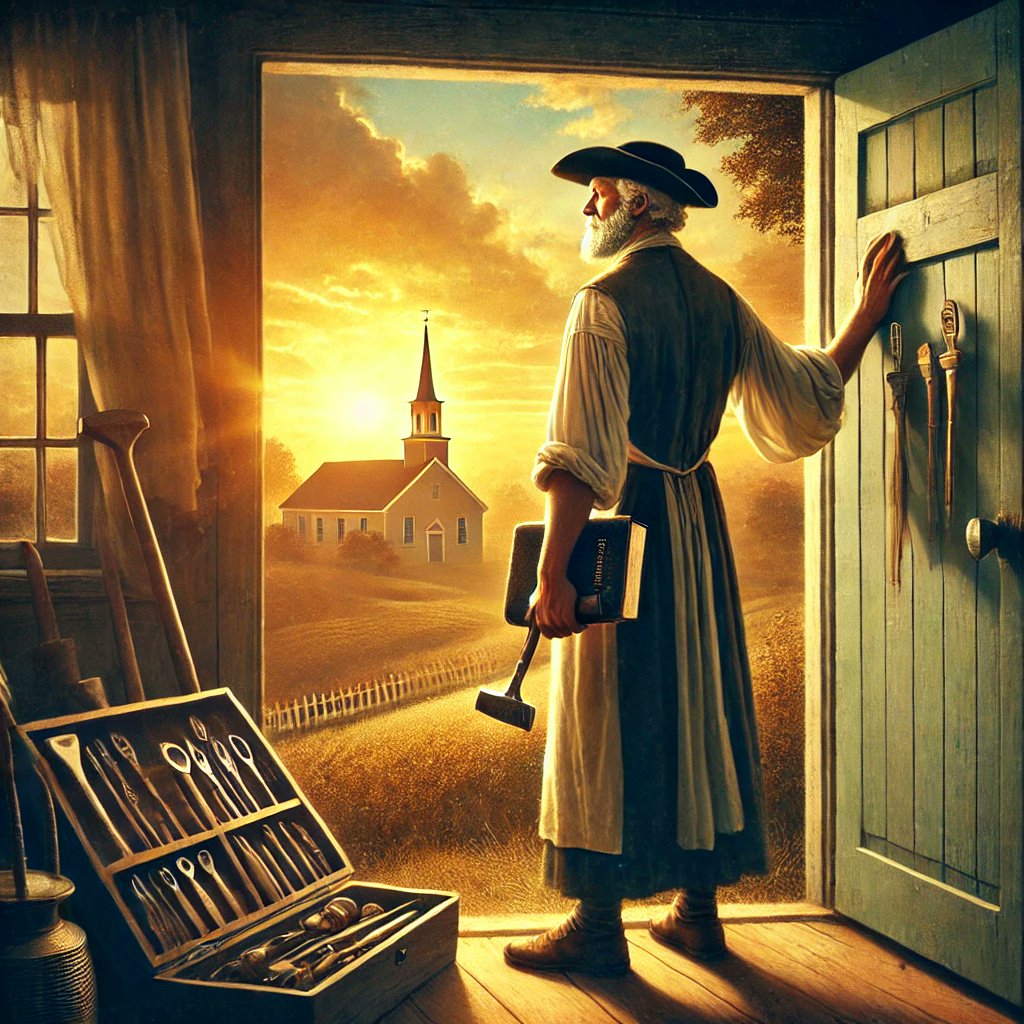Many today assume they’re Christians because they prayed a prayer once.
The Puritans had a far more serious test of true faith—one that terrifies some and comforts others.
Are you truly saved? Let’s find out.
🧵👇
The Puritans had a far more serious test of true faith—one that terrifies some and comforts others.
Are you truly saved? Let’s find out.
🧵👇

1/ The Puritans didn’t ask, “Did you invite Jesus into your heart?”
They asked:
Do you have new affections?
Do you hate your sin?
Do you hunger for holiness?
Because grace transforms, and if there’s no transformation… there’s no grace.
They asked:
Do you have new affections?
Do you hate your sin?
Do you hunger for holiness?
Because grace transforms, and if there’s no transformation… there’s no grace.
2/ Thomas Watson put it bluntly:
"Faith that does not change your heart will never save your soul."
A true Christian isn’t just someone who believes in Jesus. Even demons do that (James 2:19).
Saving faith changes you.
"Faith that does not change your heart will never save your soul."
A true Christian isn’t just someone who believes in Jesus. Even demons do that (James 2:19).
Saving faith changes you.
3/ But what if you still struggle with sin?
The Puritans would ask: Do you fight it?
The difference between a true believer and a false convert isn’t sinlessness—but warfare. The saved wage war on sin. The lost make peace with it.
The Puritans would ask: Do you fight it?
The difference between a true believer and a false convert isn’t sinlessness—but warfare. The saved wage war on sin. The lost make peace with it.
4/ William Gurnall warned:
"The Christian must always be at war. If he has peace with sin, he is at war with God."
That’s a hard truth. But false assurance is deadly.
"The Christian must always be at war. If he has peace with sin, he is at war with God."
That’s a hard truth. But false assurance is deadly.

5/ Yet here’s the comfort: Assurance isn’t based on how perfect you are. It’s based on:
A love for Christ
A hatred for sin
A hunger for righteousness
Even if weak, these are signs of life.
A love for Christ
A hatred for sin
A hunger for righteousness
Even if weak, these are signs of life.
6/ Richard Sibbes called this “the smoking flax.”
Jesus doesn’t snuff out weak faith. If you have even a spark of love for Him, it’s proof that He is at work—and He will fan it into flame.
Jesus doesn’t snuff out weak faith. If you have even a spark of love for Him, it’s proof that He is at work—and He will fan it into flame.

7/ The Puritans weren’t trying to make real believers doubt—they were trying to wake up false converts.
So ask yourself: Do you feel conviction? Do you long to love Christ more? That’s evidence of grace.
So ask yourself: Do you feel conviction? Do you long to love Christ more? That’s evidence of grace.
8/ John Owen said:
"A man may have a weak faith, but a strong Christ."
Your salvation doesn’t depend on the strength of your grip on Christ—but the strength of His grip on you.
"A man may have a weak faith, but a strong Christ."
Your salvation doesn’t depend on the strength of your grip on Christ—but the strength of His grip on you.

9/ The Puritans’ test of salvation is both terrifying and comforting:
Terrifying if your heart is unchanged.
Comforting if you are weak, but fighting.
Examine yourself. But if you have even a mustard seed of faith, Christ will never cast you out.
Terrifying if your heart is unchanged.
Comforting if you are weak, but fighting.
Examine yourself. But if you have even a mustard seed of faith, Christ will never cast you out.
10/ Assurance is a gift from God.
Pray for stronger faith. Deepen your love for Christ. Rest in this:
"He who began a good work in you will bring it to completion" (Phil. 1:6).
Do you pass the Puritan test? Let’s talk. 👇
Pray for stronger faith. Deepen your love for Christ. Rest in this:
"He who began a good work in you will bring it to completion" (Phil. 1:6).
Do you pass the Puritan test? Let’s talk. 👇
• • •
Missing some Tweet in this thread? You can try to
force a refresh










